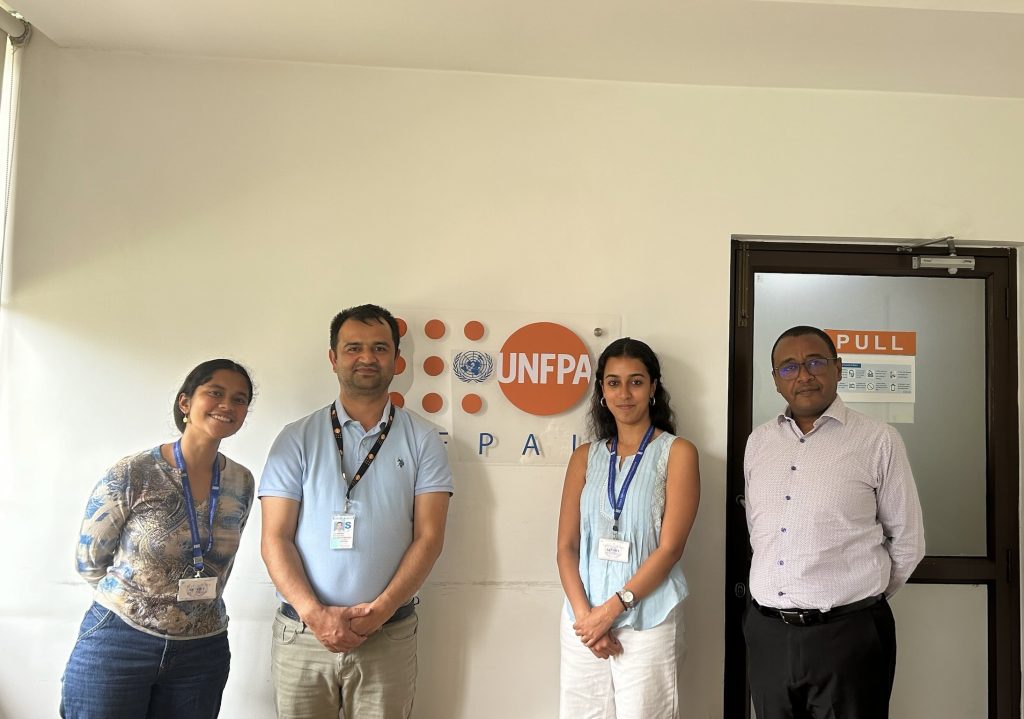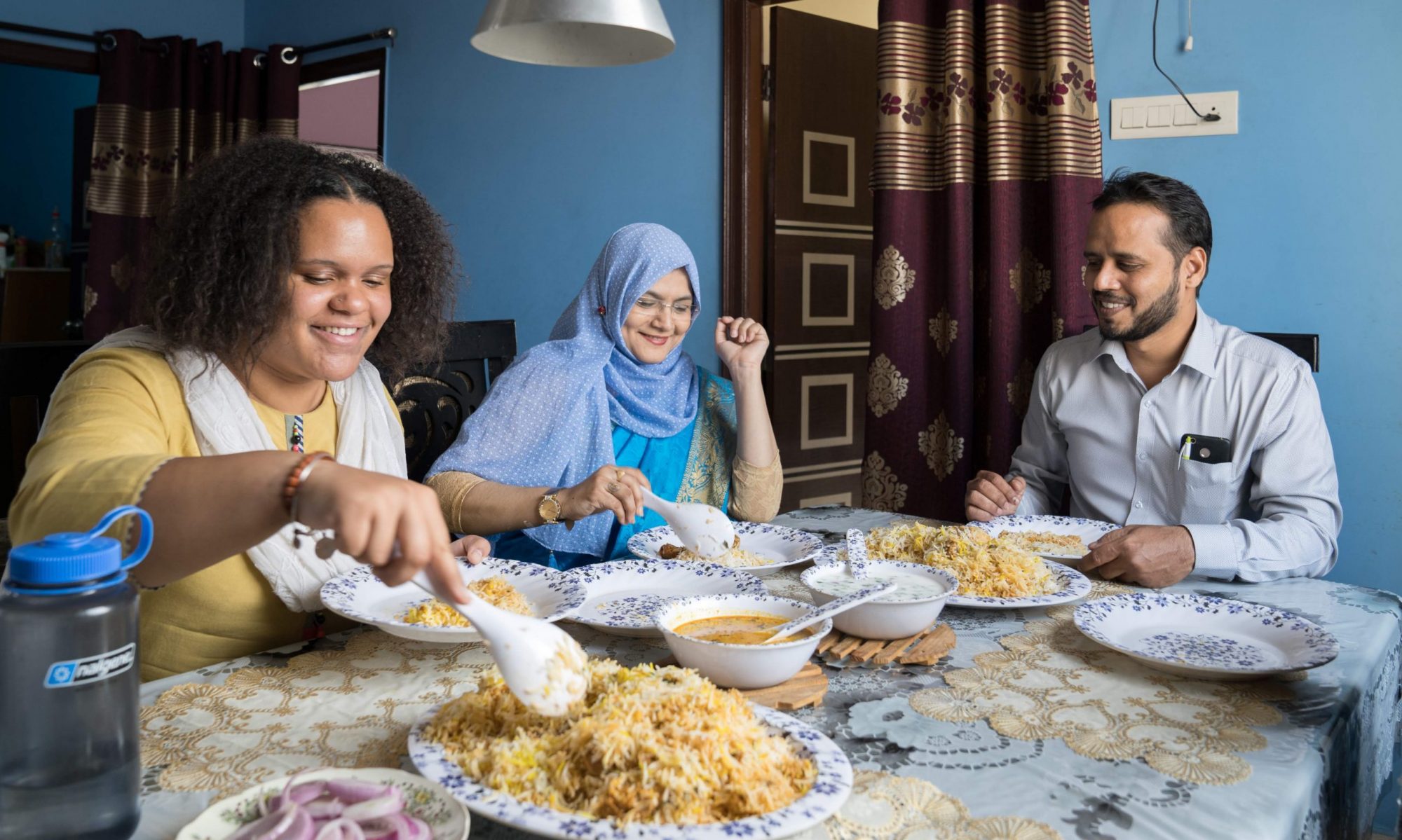By Neya Krishnan

As I write, I am currently on my Qatar Airways flight from Kathmandu to Doha, marking the culmination of a truly extraordinary set of eight days in Nepal with the Tufts South Asian Regional Committee. From delicious thalis to unparalleled hospitality to informative and meaningful interviews, my time in Kathmandu has been filled with learning, wonder, and joy.
I came to Kathmandu looking to research the various factors that impact sexual and reproductive health in Nepal and the facilitators and barriers to access to reproductive healthcare and education in rural vs. urban regions. Over the past week, I spoke to various NGOs, community leaders, and ~unexpectedly~ various student activists who held a surprise menstrual health day flash mob in Patan Durbar Square. My conversations with these individuals who deeply care about the causes they advocate for, from undergraduate students to the founders and directors of major NGOs, inspired me and allowed me to crack beyond the surface of the reproductive health issue.
My first interview was on Tuesday with Jagadishwor Ghimre, country director of Ipas Nepal, an NGO focused on promoting the sexual and reproductive health rights of women and girls in Nepal through policy advocacy, training workshops, and more. One of the most interesting insights Ghimre offered was that policy decisions on abortion and contraceptive use in the United States have broad and far-reaching impacts on the funding of organizations such as Ipas in Nepal. In fact, Ghimre closely monitors changes in US policy, especially a potential Trump presidency, to plan accordingly for budget changes within Ipas. Later that day, I met with Dr. Suman Rawal, Disaster Risk Management Coordinator at ADRA Nepal, an NGO working in more than 50 Districts across all 7 of Nepal’s Provinces with programs that relate to Maternal and Newborn Health, Adolescent Sexual and Reproductive Health, and Family Planning among several other health realms. One notable insight Dr. Rawal revealed was ADRA’s role in supporting women during earthquakes by building several reproductive health camps and distributing dignity kits, even as recently as November 2023, in the Jajarkot district following the Karnali earthquake.
The next day, I attended a session one of our team members, Ishika, was able to set up with UNICEF in Nepal’s United Nations House, and through that, I made contact with Ajay Acharya, a program analyst at the United Nations Population Fund (UNFPA). The UNFPA is a branch of the UN that fights for universal access to sexual and reproductive health and reproductive rights across the world. My conversation with Ajay and his colleague Dr. Yilma Alazar offered fascinating context into the relationship between intimate partner violence and sterilization as a means of contraception, as well as considering Mother’s Health Groups and Father’s Health Groups as a way of encouraging discussion on taboo topics related to reproductive and sexual health, specifically in Muslim and rural communities.
A series of invaluable perspectives on the reproductive health question in Nepal came unexpectedly one day as we were riding in a taxi back from an interview with UN Women Nepal and noticed a group of students outside of Patan Durbar Square holding signs related to menstrual health. I immediately asked the taxi driver to stop and went outside to ask the students dispersed across the square why they were there and what they were advocating for. Here, I spoke to Shrijana Gautam, president of an NGO called We for Change, who organized this major event in collaboration with AFH Nepal for Menstrual Health Day. The number of men in attendance was refreshing, and hearing their reasoning for attendance- specifically, their desire to fight for a more just future for their mothers and sisters, was impactful.
My last in-person interview was with Anand Tamang, founder and president of CREPHA, a nonprofit consultancy and research organization with expertise in reproductive health, abortion, gender, and development research. Anand highlighted the interconnectedness of research and policy impact. Interestingly, the effort CREPHA made in surveying and collecting quantitative data on abortion led to the legalization of abortion in Nepal in 2002.
One of my favorite non-academic highlights of this trip was getting our own personal tour guide of Kathmandu in Hanshika, a Tufts student who was an invaluable part of our research trip and is originally from Kathmandu. She kept us from getting scammed by taxi drivers, confidently negotiated down prices with shop vendors in Thamel and Bhaktapur, and brought us to her home, where her parents welcomed us with delicious food and complete warmth. I had a blast exploring Kathmandu with Ishika, Jewel, Priyanka, and Hanshika, and I’m so grateful to every person who made me feel welcome in Nepal, from the front desk workers at the NGOs I visited to the staff at the Boutique Heritage Home. Kathmandu, cheers to you until we meet again!!
